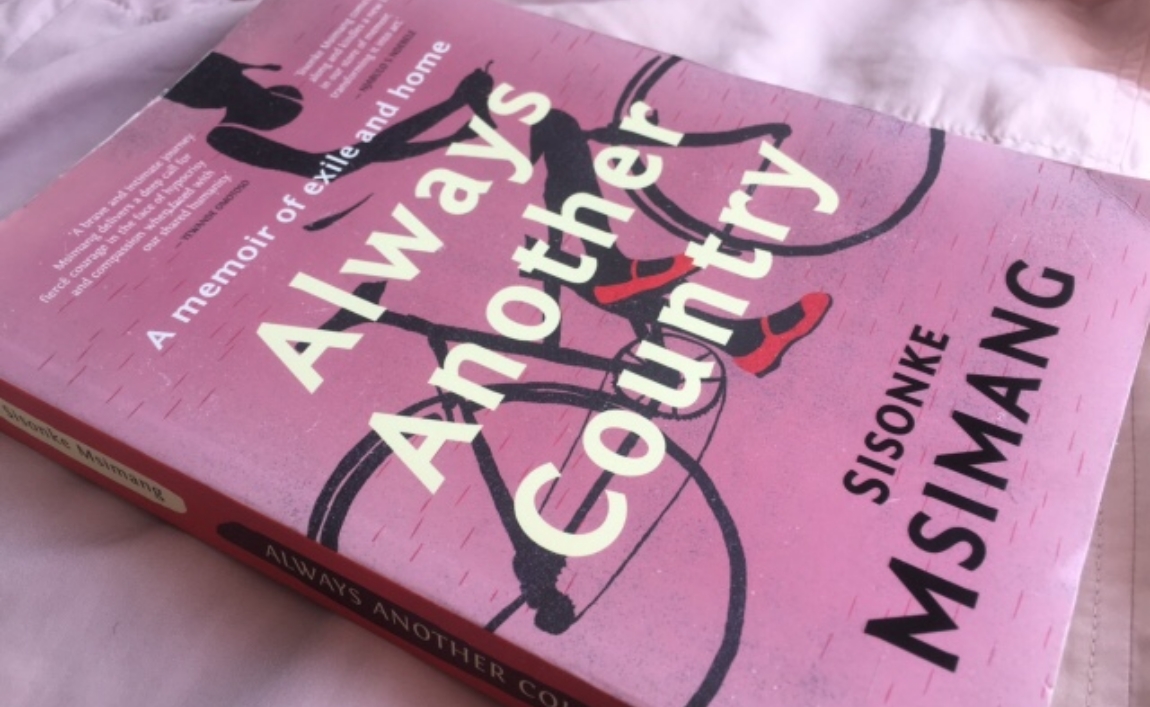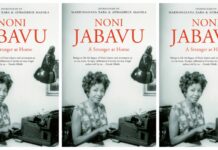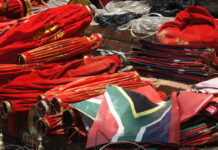Sisonke Msimang’s memoir, Always Another Country, is finally here and what a treat it is. Always Another Country contextualises the struggles of Msimang’s freedom fighter parents and the great sacrifices they made for their ideals – ideals which no longer seem to hold sway in the country they love.
In the prologue, Msimang says the book is both personal and political. “It is about how I was made by the liberation struggle and how I was broken by its protagonists, and how like all of us in South Africa, I am piecing myself back together so that never again will I feel I need a hero,†she writes.
Even before she was born, Msimang’s father, Mavuso, held a senior position in the ANC’s armed wing, uMkhonto we Sizwe, and lived an exile’s life, always moving from one country to another. Throughout the memoir, she recounts what this has meant for her family and herself, how exile took them to countries across Africa and North America, and how the revolutionary spirit of the 70s informed their identity.
The book is written as a collection of personal reflections and details the places that exile took her and her family to. The form and content of Always Another Country complement each other beautifully; the result is a text that not only draws you in, but holds you there.
One of the major themes from Always Another Country is love. Msimang writes about love, in its different forms – love of country, love of family, love of a man, and the indescribable power of the love of the strong women around you. At heart, Always Another Country is a love story and a tribute to all the places she’s called home.
She writes of the people she has met and recounts, sometimes with amusement, the experiences that have informed the person she is today. She is frank about the hard lessons she’s learnt and the internal crises she’s faced.
In one passage, she reflects on how, as a child living in Zambia, in a block of flats called Burley Court, she got into a fight with another child who told her that her father never loved her mother because she had never given him a son. In this period, she was also surrounded by women she was in awe of, who said and did things that young Msimang was inspired by. Was this the birth of her feminist views?
Later, after relating her journey through school and then college in Canada and the US, she recounts how, during a family trip through KwaZulu Natal, she confronted a elderly white woman in the Drakensberg who casually referred to her employee as “my Zulu.†The woman defends her choice of words saying, “that is what we do here and nobody minds,†and Msimang’s parents try to defuse the situation. Later, as they drive, they all marvel at surrealness of the incident. “We drive to the battlefield of Rorke’s Drift, to hear about how our people fought bravely but were defeated,†she writes.
Earlier this month, Msimang, writing for Africa Is A Country, noted a common theme that has emerged in the recent books by Redi Tlhabi, Pumla Gqola, and Lindiwe Hani. “In different ways, each of these books is really about the end of innocence – about how each author has marked her departure from the halcyon days when the African National Congress and its leaders were held in high regard, to today, when they are seen by and large as having betrayed the ideals of the struggle.” It is fair to say that these women are contemporaries of Msimang – all strong, intelligent, black women, making very necessary contributions to South African discourse and shaping the way in which we view where we have come from and where we are going.
In her memoir, Msimang also reflects on the state of South Africa today. She writes, “Our leaders do what they do because we allow it and we allow it because we remember the sins of the past and that the past was awful.â€
Msimang recounts being present at the Truth and Reconciliation Commission and having tears in her eyes after hearing the inimitable poet and playwright Gcina Mhlope utter, “This is the time of the storyteller and every single person in this room has got a story to tell and more must be told.” Like Mhlope, Msimang is a masterful storyteller. Her memoir cements her place as one of the country’s most beloved writers.









